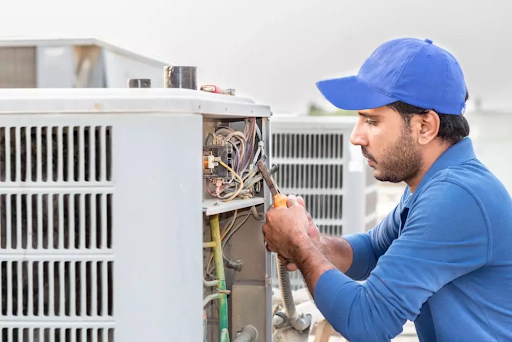In the modern home, technology plays a crucial role in enhancing comfort, convenience, and efficiency. From sophisticated HVAC systems to cutting-edge smart home devices, the integration of technology into residential spaces requires careful planning, installation, and maintenance. This article provides essential tips for effectively managing home technology, with a particular focus on air conditioning repair and heat pump AC units.
Understanding Home Technology Integration
Today’s home technology encompasses a wide range of systems, including heating, cooling, lighting, and security. To optimize these systems, it’s essential to understand how they integrate and function together. Planning is the first step in ensuring a seamless technology experience. Consider the layout of your home, the climate of your area, and your specific needs when selecting and installing technology systems.
Installing Home Technology: Key Considerations
When installing home technology, several factors must be considered to ensure proper functionality and longevity.
- Professional Assessment: Always start with a professional assessment of your home. Experts can provide valuable insights into the best technology solutions based on your home’s layout and your personal needs.
- Quality of Equipment: Invest in high-quality equipment from reputable manufacturers. Quality equipment not only performs better but also lasts longer, reducing the need for frequent replacements.
- Compatibility: Ensure that new technology is compatible with existing systems. For instance, if you’re upgrading your HVAC system, make sure it integrates well with your home’s current infrastructure.
- Proper Installation: Professional installation is crucial. Technicians are trained to handle complex installations and can ensure that systems are set up correctly to avoid issues in the future.
Air Conditioning Repair: Maintaining Efficiency
Importance of Regular Maintenance
Air conditioning systems are vital for maintaining indoor comfort, especially during hot weather. Regular maintenance is essential to keep these systems running efficiently and to extend their lifespan.
- Scheduled Check-Ups: Arrange for professional air conditioning repair services at least once a year. Regular check-ups can help identify and address potential issues before they become major problems.
- Filter Replacement: One of the simplest yet most effective maintenance tasks is to replace air filters regularly. Dirty filters can restrict airflow and cause the system to work harder, leading to higher energy consumption and potential damage.
- Clean Coils: Ensure that the evaporator and condenser coils are clean. Dust and debris can accumulate on these coils, reducing the system’s efficiency. Professional cleaning is recommended to maintain optimal performance.
- Check Refrigerant Levels: Proper refrigerant levels are crucial for the efficient operation of an air conditioning system. Low refrigerant levels can indicate a leak, which requires immediate attention from a professional.
Heat Pump AC Unit: Efficient Heating and Cooling
Understanding Heat Pump Technology
Heat pump AC units offer an efficient solution for both heating and cooling. Unlike traditional systems, heat pumps transfer heat rather than generating it, which can lead to significant energy savings.
- Installation Tips: Proper installation is crucial for the efficiency of a heat pump ac unit. Ensure that the unit is sized correctly for your home and installed by a certified technician. An improperly installed heat pump can lead to reduced efficiency and higher energy bills.
- Regular Maintenance: Like air conditioning systems, heat pump units require regular maintenance. Schedule annual check-ups to inspect components such as the compressor, expansion valve, and reversing valve. Regular maintenance ensures that the unit operates efficiently and has a longer lifespan.
- Defrosting Issues: Heat pumps can experience frost build-up on the outdoor coils, especially in colder climates. Make sure the unit has a defrost cycle to address this issue. If the defrost cycle is not functioning correctly, it could indicate a problem that requires professional repair.
- Energy Efficiency: Modern heat pump systems are designed to be highly energy-efficient. Look for models with high Seasonal Energy Efficiency Ratio (SEER) ratings and ensure that the unit is regularly maintained to keep efficiency levels high.
Conclusion
Effective management of today’s home technology involves careful planning, professional installation, and ongoing maintenance. Whether you are dealing with air conditioning repair or optimizing the performance of a heat pump AC unit, adhering to these essential tips will ensure that your home technology remains reliable and efficient. Regular maintenance not only prolongs the life of your systems but also enhances their performance, contributing to a comfortable and technologically advanced living environment.

